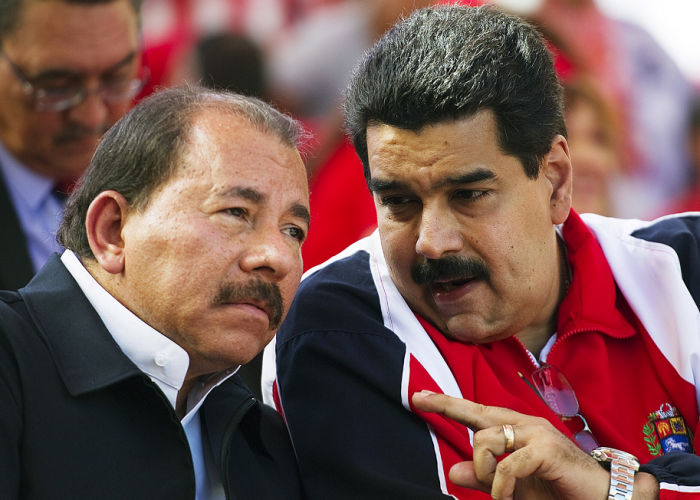
What each result could imply for the Nicaraguan dictatorship of Daniel Ortega and Rosario Murillo.
HAVANA TIMES – Venezuelans will go to the polls on July 28th and the results of that vote will greatly influence the political panorama of the Ortega-Murillo regime in Nicaragua. Analysts consulted by La Prensa agreed that the decisions of the Nicaraguan regime could vary greatly, depending on whether the opposition takes control of the South American country, or whether Nicolas Maduro remains in power.
At the moment, the regime in Nicaragua is “watching closely” the evolution of the Venezuelan elections. On more than one occasion, Rosario Murillo, the dictatorship’s spokesperson, has predicted that Nicolas Maduro will win the electoral contest. On July 23, for example, during her usual midday address, Murillo assured she had “full confidence” that Maduro will win.
“On July 28, the day of the elections in Venezuela, the birthday of the eternal Comandante [Hugo Chavez, who died in 2013] will be celebrated, and that date is – and will be – blessed by the great spirits of our teachers, heroes and guides, who all converge in Chavez and are guarding the supreme dreams of Bolivar, Marti, Sandino and Fidel. Dreams marked in freedom,” Murillo stated after reading a “message of solidarity” that her government sent to Maduro on Monday, July 22.

High tension surrounds upcoming elections
Venezuela’s presidential elections are scheduled to take place on Sunday, July 28. In them, Nicolas Maduro, who has been in office continuously since 2013, will face his chief rival, Edmundo Gonzalez. Although Gonzalez clearly has greater support, analysts warn that it’s very difficult to imagine those in charge allowing Maduro to leave power. A victory for the opposition would put an end to nearly 26 consecutive years of the “Chavista” regime, today headed by Nicolas Maduro, but following in the footsteps of deceased leader Hugo Chavez.
“You can see on social media what’s happening, that the opposition has had a lot of rallies in their favor. It appears that there’s a large majority that support an important change in leadership for Venezuela. The support for Maduro is less massive,” Venezuelan-Costa Rican analyst and economist Daniel Suchar Zomer told La Prensa.

According to former Venezuelan professor Angel Lombardi, in the course of nearly 26 years of the political project begun by Hugo Chavez, there’ve been many possibilities for Venezuela to move ahead, but instead of that, the country has moved towards authoritarianism.
As a result, he feels, there’s a lot of support from the population for the figure of Edmundo Gonzales, reflecting the Venezuelans’ acceptance of Maria Corina Machado, the original opposition candidate who was barred from running


